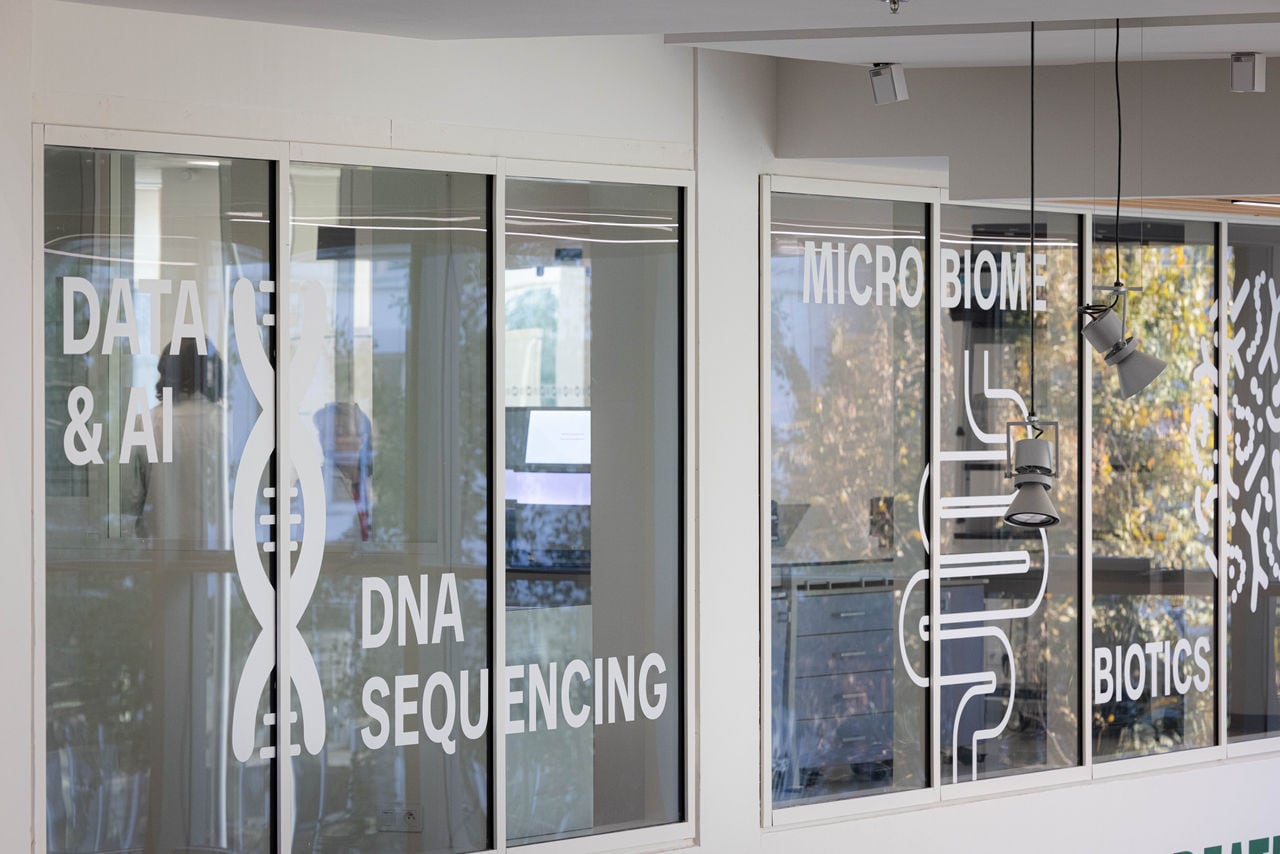The OneBiome lab, inaugurated Sept. 29, is focused on developing targeted solutions by combining advanced microbiology, AI and data science.
Its inauguration marks the start of an expanded research agenda to explore microbial interventions across the lifespan, with a particular focus on specific health conditions, such as allergies and obesity.
“We know that the microbiome is a central regulator of overall health,” Rocio Martin, Danone’s vice president of life science innovation, told NutraIngredients. “However, we see some limitations of the knowledge of the microbiome today.
“The knowledge we have built in the last few years has been quite descriptive. We know about the qualities and the types of microbes in the gut, but we want to bring it to the next level and understand what they do, how they do it and how we can impact health through nutrition.”

Utilizing AI
Consumer awareness of the importance of gut health is on the rise. Google trends show that searches for gut health have more than tripled since 2020.
Consumer research by Danone, however, reveals that only half of the people surveyed believe they have a healthy gut microbiota, and eight in 10 people experience digestive discomfort.
“We know from studying the gut microbiome that there is very high individual variability, so applying what works for one may not work for another,” Martin said. “Personalization is the end goal, but that’s very difficult to do at scale. So, what we are trying to do is understand specific group needs, such as infants, the elderly or those that have certain allergies.”
As part of this mission, Danone is harnessing AI to build models which can mimic an individual’s gut microbiome in order to match products to individual health status or life stage.
“AI is the basis of what we are doing because the amount of data we get when we sequence the microbiome is immense,” Martin said. “You need AI to connect to all the information you have on that subject and compare it to the data you have across the world.”
Digital health tools, such as wearable tech, will also be used to provide more objective parameters, rather than relying on subjective self-reporting.
This new focus on tech is informed by the recent work of the OneBiome lab in Singapore, where AI-powered tools are providing parents with real-time insights into their child’s health. This includes an iron, stool and growth tracker to monitor health and development.
Infant health will also be a key research pillar at the Paris-Saclay site, where Danone will investigate how microbial interventions in the first 1,000 days of life impact long-term health outcomes.

Exploring emerging research areas
The inauguration follows Danone’s acquisition of the Akkermansia Company, which discovered and developed Akkermansia muciniphila MucT, a probiotic strain which, when heat-treated, is transformed into a postbiotic.
The company now plans to explore how Akkermansia and other postbiotics could be used in both infant and adult nutrition products, particularly in the context of preserving gut barrier integrity.
“Postbiotics confer many of the same benefits as probiotics, but the advantage is that the microorganisms are not alive, so they are compatible with new food forms,” Martin said.
“Akkermansia is a science-based biotic concept that has solid evidence for strengthening the gut barrier, reducing inflammation and supporting metabolic health. It is therefore a key biotic that will help us to drive our mission of bringing health through food with our biotics expertise.”
The lab will also investigate the impact of GLP-1 drugs on the gut microbiome to identify whether certain microbial interventions could increase individual responses to these treatments.
“There is a growing use of GLP-1 drugs, and we have learned that people may or may not respond to these drugs based on the microbiome they have,” Martin said. “What we are trying to find out is whether biotic interventions could determine whether or not consumers respond to certain treatments or interventions.”
Personalization, prediction and prevention
Ultimately, Danone’s mission is to open opportunities for personalized, preventive and predictive food solutions, tailoring advice and creating products for specific groups with specific needs.
The company is also committed to exploring emerging areas of research such as the gut-brain axis as part of a mission to uncover how the gut microbiome influences overall health.
“We like to talk about the gut-organ access because we believe the gut impacts health overall—this is something we are exploring quite intensively,” Martin said. “One of the challenges we have in these approaches is the lack of validated biomarkers and the clinical endpoints, but this is something we are starting to explore.”




